Recent Blog Posts
Is Lack of Hygiene Considered Nursing Home Neglect?
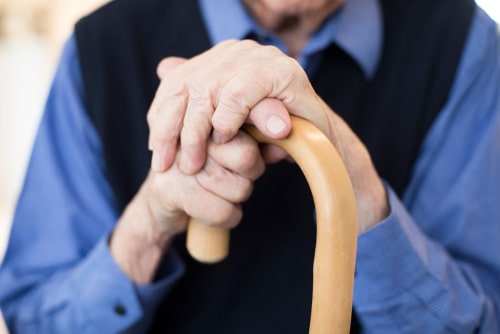 Though it is not commonly thought of as one of the most important things to health, personal hygiene for nursing home residents is essential to maintaining good physical and mental well-being. Many factors may contribute to nursing home staff neglecting the personal hygiene of residents and the hygiene throughout the facility, including improper hygiene procedures and negligent behavior by staff.
Though it is not commonly thought of as one of the most important things to health, personal hygiene for nursing home residents is essential to maintaining good physical and mental well-being. Many factors may contribute to nursing home staff neglecting the personal hygiene of residents and the hygiene throughout the facility, including improper hygiene procedures and negligent behavior by staff.
If you have noticed a lack of hygiene around your loved one’s nursing home facility, your family member may be suffering from neglect by nursing home staff. An experienced Illinois nursing home neglect attorney can answer your questions about what to do next.
Signs of Improper Nursing Home Hygiene
Lack of hygiene can be generally easy to notice in a nursing home facility, as you are likely to see dust, dirt, cluttered areas, and stained bedding around the facility. You may also notice stains in bathroom areas and dirty eating or living areas.
Are Slip and Fall Injuries Catastrophic?
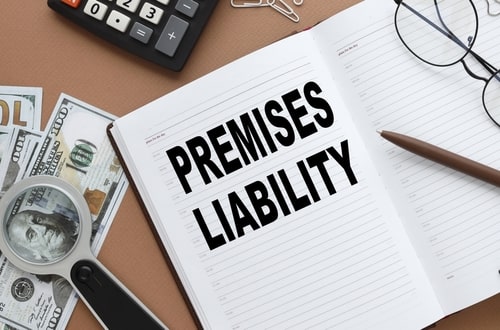 Slip and fall injuries may not commonly be thought of as the most harmful injuries out there, though slip and fall accidents can be very serious. Sometimes, a victim of a slip and fall may sustain injuries that result in life-long effects, causing his or her injuries to be considered catastrophic. In the case of severe slip and fall injuries, you may be able to pursue a compensation claim against the responsible party.
Slip and fall injuries may not commonly be thought of as the most harmful injuries out there, though slip and fall accidents can be very serious. Sometimes, a victim of a slip and fall may sustain injuries that result in life-long effects, causing his or her injuries to be considered catastrophic. In the case of severe slip and fall injuries, you may be able to pursue a compensation claim against the responsible party.
An experienced Illinois slip and fall attorney can help you understand your legal rights.
Catastrophic Effects of a Slip and Fall
In Illinois, a catastrophic injury permanently affects a person’s life and impacts how that person can live it in the future. After experiencing a catastrophic injury, a person may be permanently disabled and unable to work, enjoy life as he or she used to, or provide for his or her family.
When Is a Death Considered Wrongful in Illinois?
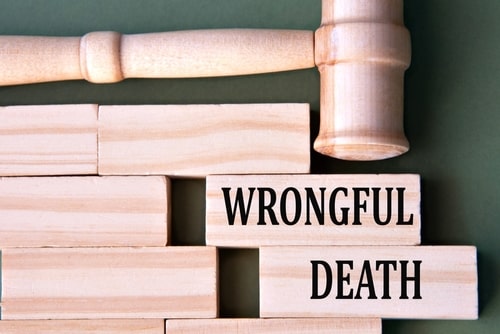 Losing a loved one is never easy, and while some deaths are unavoidable, others are preventable. When a preventable death occurs due to the negligence or recklessness of a third party, the death may be considered “wrongful” under Illinois law. In the case that your loved one suffers a wrongful death, you may be able to pursue a wrongful death claim to recover compensation.
Losing a loved one is never easy, and while some deaths are unavoidable, others are preventable. When a preventable death occurs due to the negligence or recklessness of a third party, the death may be considered “wrongful” under Illinois law. In the case that your loved one suffers a wrongful death, you may be able to pursue a wrongful death claim to recover compensation.
A skilled Illinois wrongful death lawyer is essential to investigating your options for a wrongful death claim.
Understanding the Illinois Wrongful Death Act
In Illinois, the Wrongful Death Act states that wrongful death is a death that occurs due to another person’s “wrongful act, neglect or default.” You can think of a wrongful death claim as similar to a personal injury case where negligence or recklessness leads to an injury, except in the case of wrongful death, these injuries are fatal.
I Got Hurt at an Illinois Business - Is the Business Responsible?
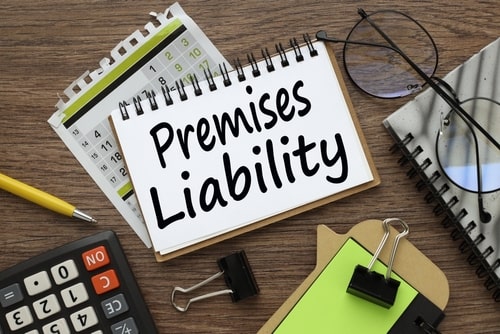 Illinois businesses include malls, retail stores, restaurants, and even hotels. You may pass through these places daily without incident, but, sometimes, accidents do happen. If you get hurt at an Illinois business due to the owner’s negligence or other reckless behavior, he or she may be responsible for your injuries. An experienced Illinois premises liability lawyer can tell you more.
Illinois businesses include malls, retail stores, restaurants, and even hotels. You may pass through these places daily without incident, but, sometimes, accidents do happen. If you get hurt at an Illinois business due to the owner’s negligence or other reckless behavior, he or she may be responsible for your injuries. An experienced Illinois premises liability lawyer can tell you more.
Common Accidents at Illinois Businesses
There are many businesses in the Illinois area, and all of these businesses have a duty of care to their guests and patrons. Common accidents that may occur in area businesses, restaurants, retail stores, and hotels include the following:
- Slip and fall incidents
- Balcony, railing, and stair collapse
- Exposed wiring or tripping hazard accidents
Is Depression a Sign of Nursing Home Abuse?
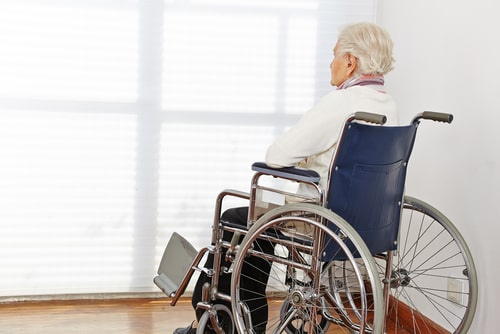 Leaving your elderly loved one in the care of a nursing home can be stressful for both you and them, as you want to be sure they are properly cared for. Mood changes that occur after your loved one is in a facility can be a symptom of aging, though depression and other sudden mood changes may also be a result of nursing home abuse or neglect.
Leaving your elderly loved one in the care of a nursing home can be stressful for both you and them, as you want to be sure they are properly cared for. Mood changes that occur after your loved one is in a facility can be a symptom of aging, though depression and other sudden mood changes may also be a result of nursing home abuse or neglect.
If you suspect that your loved one is dealing with abuse at their nursing home facility, you should contact an experienced Illinois nursing home abuse lawyer right away to investigate these claims further.
Mood Changes in Your Loved One
Depression, along with mood changes like anxiety, fearfulness, anger, and sadness, can be symptoms of aging or mental deterioration. Still, when these changes occur suddenly after your loved one has started living in a nursing home, they may be an indicator of abuse or neglect.
Can I Pursue a Lawsuit After a Delayed Diagnosis?
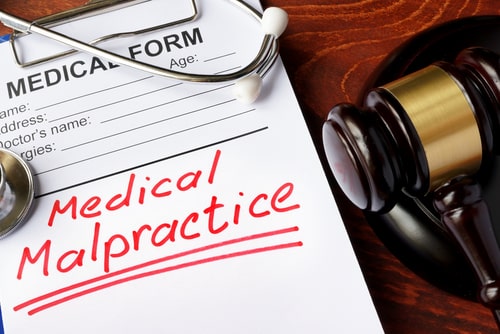 Delayed diagnosis occurs when medical professionals neglect their duties to patients and either repeatedly misdiagnose or delay an important diagnosis. This can have disastrous consequences for patients who need treatment, and a delayed diagnosis is generally considered a type of medical malpractice in Illinois.
Delayed diagnosis occurs when medical professionals neglect their duties to patients and either repeatedly misdiagnose or delay an important diagnosis. This can have disastrous consequences for patients who need treatment, and a delayed diagnosis is generally considered a type of medical malpractice in Illinois.
An experienced Illinois medical malpractice attorney can help you navigate a lawsuit if you wish to pursue a claim after dealing with a delayed medical diagnosis.
What Causes a Delayed Diagnosis?
A delayed diagnosis can be caused by many different things, as there are typically many medical professionals involved in screening patients, ordering tests, and interpreting test results. At any of these points, a medical professional may neglect their duty of care to patients and fail to provide an accurate diagnosis.
Do I Have a Claim if Injured on Chicago Public Transit?
 Public transportation in Chicago, such as buses and trains, is a popular way for residents and tourists to reach their destinations in the area. While this form of travel is relatively safe, accidents can be catastrophic when they occur. If you are injured while using Chicago public transit, you may be eligible to pursue a claim for compensation. A knowledgeable Illinois personal injury attorney can help you with your case.
Public transportation in Chicago, such as buses and trains, is a popular way for residents and tourists to reach their destinations in the area. While this form of travel is relatively safe, accidents can be catastrophic when they occur. If you are injured while using Chicago public transit, you may be eligible to pursue a claim for compensation. A knowledgeable Illinois personal injury attorney can help you with your case.
Injuries Resulting from a Public Transit Accident
Even though Chicago public transportation injuries are not the most commonplace thing, when they occur, these injuries that result can be life-changing. Common and catastrophic injuries that result from this type of accident include:
- Whiplash, back injuries, and neck injuries
- Spinal cord injuries, including paralysis
Can I Sue After My Neighbor's Dog Bit Me in Illinois?
 Receiving a dog bite from a neighbor's dog after you did nothing to provoke or trigger the dog may mean that your neighbor is liable for any expenses or damages that occurred. If you are considering suing to recover compensation, it is important to understand the serious consequences of a dog bite and your rights. An experienced Illinois dog bite lawyer can help guide you through Illinois premises liability laws and advocate for your rights as you pursue a claim.
Receiving a dog bite from a neighbor's dog after you did nothing to provoke or trigger the dog may mean that your neighbor is liable for any expenses or damages that occurred. If you are considering suing to recover compensation, it is important to understand the serious consequences of a dog bite and your rights. An experienced Illinois dog bite lawyer can help guide you through Illinois premises liability laws and advocate for your rights as you pursue a claim.
The Costly Consequences of a Dog Bite
Dog bites can have serious consequences, and the expenses related to treating and recovering from a dog bite can be extensive. In some cases, dog bites can cause permanent disability, disfigurement, or wrongful death. Expenses you may need to deal with after receiving a dog bite include:
- Medical costs for hospital care, surgery, and medication
Can I Sue After Being Injured In My Illinois Apartment?
 Injuries that occur around apartment buildings are serious incidents, and these injuries may be traumatic or lead to fatalities. If you or a loved one has been badly injured in your Illinois apartment building, you may be able to sue and pursue a claim for compensation. A skilled Illinois premises liability lawyer can help you understand your legal options and navigate the claim process.
Injuries that occur around apartment buildings are serious incidents, and these injuries may be traumatic or lead to fatalities. If you or a loved one has been badly injured in your Illinois apartment building, you may be able to sue and pursue a claim for compensation. A skilled Illinois premises liability lawyer can help you understand your legal options and navigate the claim process.
What Injuries Can I Sustain In My Apartment Building?
Apartment injuries are often severe, as they typically involve dangerous building or design defects, improperly maintained appliances or balconies, or poorly maintained amenities such as parking lots, outside staircases, and pools or gyms.
Injuries that can be sustained during an apartment building accident include:
-
Broken bones and fractures
What Is an Illinois Medical Malpractice Claim?
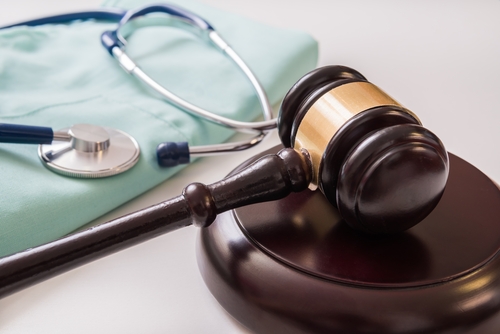 Medical malpractice occurs in Illinois when a doctor, medical professional, or hospital staff acts in a manner that is negligent or reckless, resulting in injuries or even fatalities to the victim. There are many actions that could be considered medical malpractice, and it is essential to note that medical malpractice claims for compensation in Illinois can be difficult to navigate.
Medical malpractice occurs in Illinois when a doctor, medical professional, or hospital staff acts in a manner that is negligent or reckless, resulting in injuries or even fatalities to the victim. There are many actions that could be considered medical malpractice, and it is essential to note that medical malpractice claims for compensation in Illinois can be difficult to navigate.
A seasoned Illinois medical malpractice attorney can assist you in understanding your legal options if you believe you have experienced medical malpractice.
What Is Considered Medical Malpractice?
Medical malpractice is a large umbrella that can encompass many different types of reckless actions or negligent behavior that doctors or medical staff engage in. In general, common types of medical malpractice that victims may experience include:





 312-236-6324
312-236-6324




 312-236-6324
312-236-6324 312-236-6426
312-236-6426


